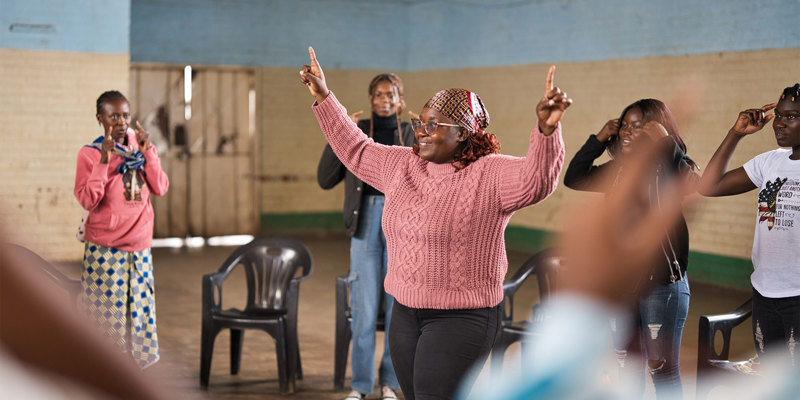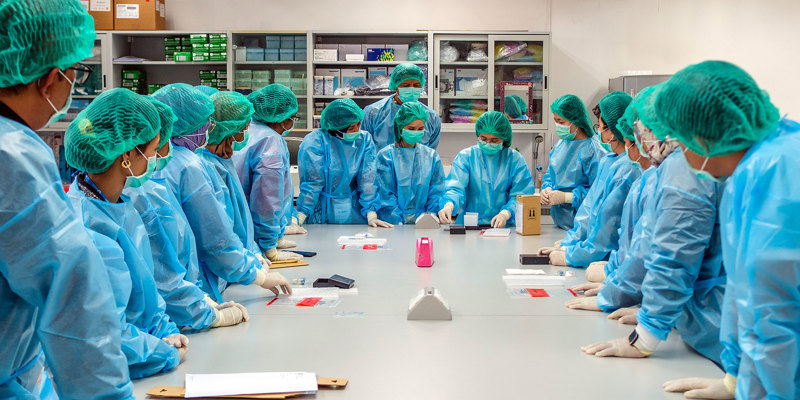Message from the Executive Director – Follow-up audit for Democratic Republic of Congo
16 July 2019
Dear Board Members,
Earlier this year the Global Fund’s Office of the Inspector General conducted an audit of the Global Fund’s grants in the Democratic Republic of Congo. This was designed as a follow up to the Inspector General’s previous audit in 2016. The audit report notes that the Democratic Republic of Congo (DRC) is a challenging operating environment with significant challenges due to lack of infrastructure, ongoing armed conflicts and recurring outbreaks of Ebola.
In spite of the challenges, the Office of the Inspector General (OIG) highlights the significant achievements due in part to the Global Fund’s investments, including a significant decrease in malaria mortality from 43 to 28 deaths per 100,000 from 2015 to 2017. There has been an impressive increase in coverage of HIV treatment from 34 percent to 59 percent in the same period. New HIV infections fell 25 percent and 90 percent of malaria cases were treated.
Since the 2016 audit, the number of Principal Recipients was reduced from five to three, with one sub-recipient per province, and the number of grants from eight to five. Donor and partner interventions have been mapped and aligned. Significant funding has been transferred from international Principal Recipients to the Ministry of Health, which has demonstrated good absorption, saved on overheads and improved long-term sustainability.
Supply chain arrangements have been streamlined, accountabilities defined and coordination improved. This has yielded encouraging results in terms of drug availability according to the 2018 Service Provision Assessment: first-line antiretroviral for adults available in 74 percent of the health facilities visited, HIV testing for pregnant women available in 86 percent of the facilities, ACTs available in 84 percent of the facilities and malaria diagnostic capacity in 90 percent of the facilities (87 percent for RDT alone). No significant treatment disruption was identified.
The report identifies several areas that could be further improved, in particular stock management and the quality of HIV cohort data for management of patients lost to follow up. The audit raised concerns around financial management and the role of the Fiscal Agent. An OIG investigation earlier this year revealed some tender manipulation and overpricing in the malaria grant under Population Services International (PSI), for which PSI has repaid the Global Fund. The audit scope excluded the malaria grant implemented by PSI, for which audit work is ongoing. Since the beginning of 2018 PSI is no longer a PR in DRC.
In order to address these issues and build on previous improvements, the Global Fund is committed to assisting the Principal Recipients to establish an early warning system to prevent stock-outs, decentralization of a critical stock management dashboard, and ensuring regular stock management reviews. The Global Fund will work with the Ministry of Health to improve targeting of differentiated service delivery for key populations. We will modify the scope of the Fiscal Agent’s work to better address gaps in financial management and strengthen the internal controls at the Principal Recipient level.
Success of the Global Fund’s programs in DRC, with 10 percent of global malaria deaths, is critical to achieve our mission globally. We are pleased with the progress made against the epidemics in DRC in recent years, while recognizing there remain significant areas for improvement to protect our investments and ensure impact in DRC. The Global Fund Secretariat would like to thank the OIG for this important piece of work, which will help us to build on these gains and ensure the long-term success of our fight against HIV, tuberculosis and malaria.
Respectfully.
Peter Sands







